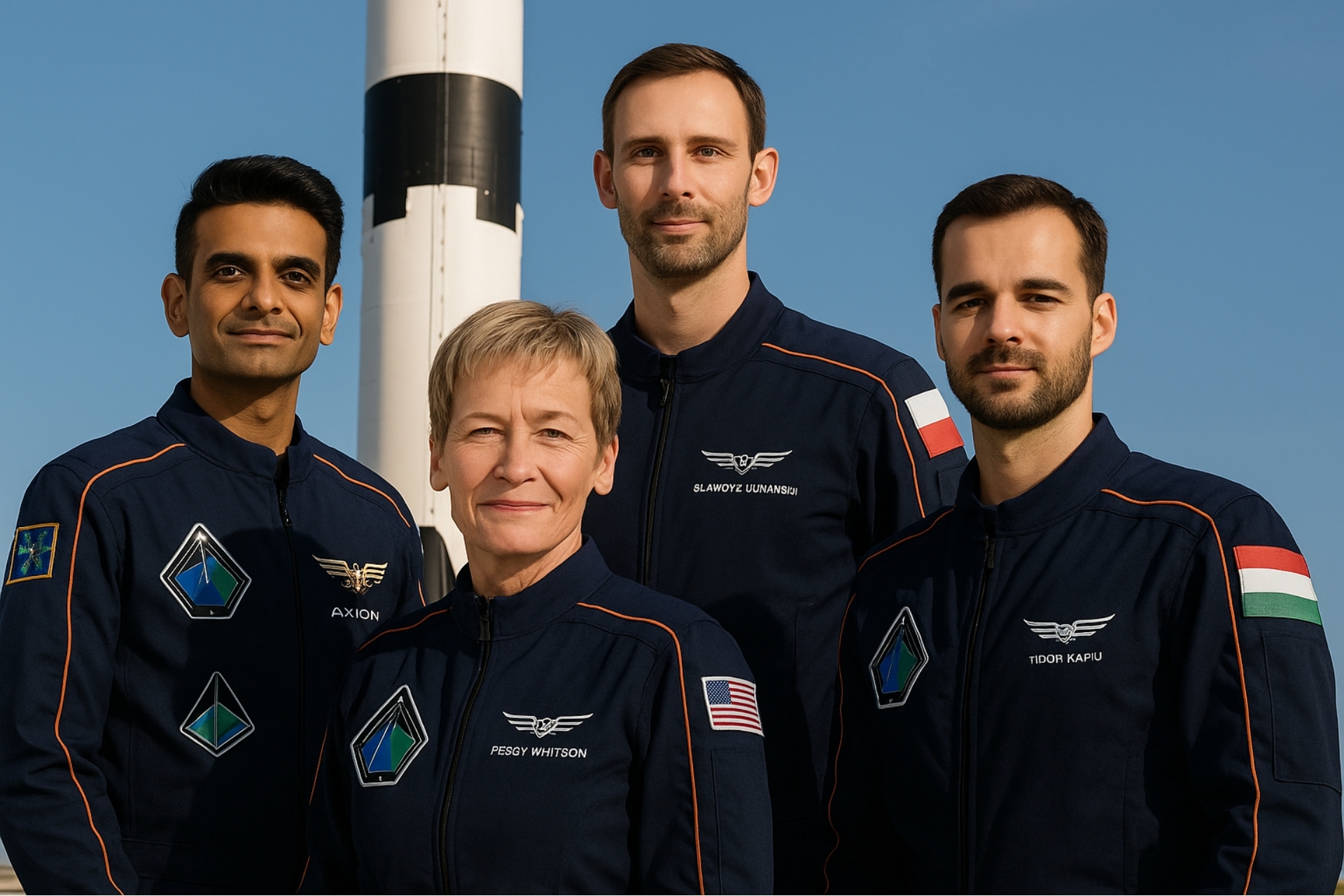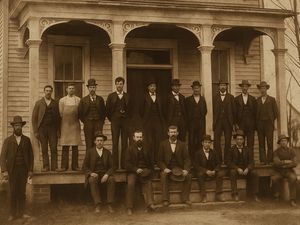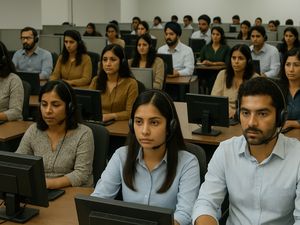

An Indian pilot is set to make history as part of the four-member crew flying to the International Space Station (ISS) on the upcoming Axiom Mission 4 (Ax-4).
Group Captain Shubhanshu Shukla of the Indian Air Force will serve as the pilot on the mission, scheduled to launch from NASA’s Kennedy Space Centre in Florida on 10 June at 08:22 EDT (12:22 GMT; 17:52 IST). This will make him only the second Indian to travel to space, and the first to visit the ISS.
The flight, led by former NASA astronaut Peggy Whitson, also includes Mission Specialists Sławosz Uznański-Wiśniewski from Poland and Tibor Kapu from Hungary. All three astronauts will mark a return to space for their respective nations after more than four decades.
The mission has generated significant interest in India. It comes 41 years after Rakesh Sharma became the first Indian in space in 1984 aboard a Russian Soyuz spacecraft.
Key Role for the Indian Pilot
As pilot, Group Captain Shukla will act as second-in-command, assisting the mission commander with critical spacecraft operations including launch, docking, undocking, and return to Earth.
The crew, who have been in quarantine since 25 May, recently introduced their “fifth crew member” — a small white toy swan named Joy — at a pre-launch press conference.
“We are ready for launch, fully trained, and have built a strong team bond,” said Commander Whitson.
Group Captain Shukla described the past year as “nothing short of transformative” and said:
“As I go into space, I carry not just instruments and equipment, but the hopes and dreams of a billion hearts. I ask all Indians to pray for our mission’s success.”
Training for India’s Future Space Goals
At 39 years old, Group Captain Shukla was one of four Indian Air Force officers shortlisted last year for India’s first human spaceflight mission, Gaganyaan, scheduled for 2027.
India has ambitious plans to establish a space station by 2035 and to send an astronaut to the Moon by 2040. The Ax-4 mission, a commercial collaboration between NASA, ISRO, ESA, and Axiom Space, is seen as a valuable step towards building that capability.
ISRO paid ₹5 billion (£43 million / $59 million) to secure Group Captain Shukla’s seat and training, which began in August last year. His experience aboard the ISS will be critical for India’s future human spaceflight programme.
“This mission offers phenomenal benefits in terms of training, access to facilities, and experience with space-based experiments,” said ISRO Chairman V Narayanan.
Who is Group Captain Shukla?
Born 10 October 1985 in Lucknow, Shukla became a fighter pilot in 2006. He has over 2,000 hours of flying experience on aircraft including MiGs, Sukhois, Dorniers, Jaguars and Hawks.
Interestingly, his entry into the Air Force was somewhat accidental. His sister, Shuchi Mishra, told the BBC:
“When he was 17, he applied to the National Defence Academy using a friend’s form. The friend was over the age limit, so Shubhanshu applied instead — and was selected. He’s never looked back.”
The family is immensely proud, knowing that “one of ours has been chosen out of 1.4 billion Indians,” she said.
“He always encourages young people to dream big and to contribute to the nation. We hope his journey will inspire the next generation.”
Science and Inspiration in Space
During their two weeks aboard the ISS, the Ax-4 crew will conduct 60 scientific experiments, including seven from India.
ISRO is also organising live sessions for Indian students to interact with Group Captain Shukla while he is in space, aiming to inspire interest in space science and technology.
Key experiments include:
Impact of spaceflight on six crop seed varieties, to aid future space agriculture.
Growth of three microalgae strains, potentially useful for food, fuel, and life support systems.
Study of tardigrades (tiny resilient animals), assessing how they survive and reproduce in space.
Research on muscle loss in microgravity and possible treatments.
Study of how using computer screens in space affects cognitive function and eye movement, with implications for future spacecraft design.
Former NASA scientist Mila Mitra says these experiments will expand our understanding of biology in space and contribute to planning for long-duration space missions.




